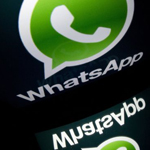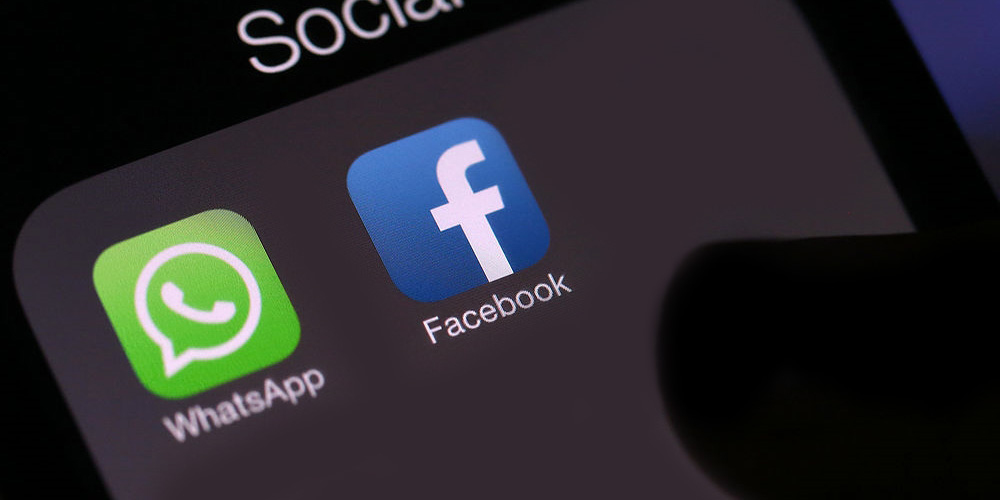
Nothing beats free things, and the Facebook-owned chat app WhatsApp knows that. For that reason, the world's most popular messaging app is making a strategic move that will change how people see its service.
Starting on January 18th, 2016, the company announces that it would stop charging its users the $1 subscription (99 cents) fee entirely. WhatsApp wants to be a free service, and it wants to keep it that way.
WhatsApp original reason for charging users was to keep the user experience ad-free. Now, WhatsApp said that it's new strategy still involves an ad-free model even though it’s no longer charging users for the privilege. Previously, WhatsApp users are given one year of free service before they'll be charged $1 for the next given year.
The news was made in a blog post on the WhatsApp website. The company said that it had nearly a billion of users around the world who use the app to say in touch with friends and family. WhatsApp decided to stop charging fees because it found this approach hasn't worked well.
"It really doesn't work that well," said founder Jan Koum. A dollar a year might not be much to most people, but access to credit cards it not ubiquitous. "We just don't want people to think at some point their communication to the world will be cut off."
WhatsApp users need to pay for that subscription fee using credit cards. Since not many of its users have credit cards, WhatsApp eases them by allowing others to pay for them. This approach didn't go well as it has expected either.
With the chatting service is now free, the change takes it effect on all versions of WhatsApp in a few weeks after the announcement.
Seeking For Revenue
As any mobile apps would do, they'll seek any opportunities to seek income. Whether it comes from membership, ads, subscription or anything in between. Being free, WhatsApp needs to get a workaround for the problem.
Without subscription fees, WhatsApp is left with no apparent way to monetize its 900 million+ monthly active users. Some people argued that WhatsApp doesn't necessarily have to because it's owned by Facebook that can supports all its expenses. But the company doesn't think that way.
WhatsApp was 5 years old when it was acquired by Facebook. By having a huge number of users, monetizing is tempting to both WhatsApp and Facebook. But making an ad-free service has long been Koum's desire, and WhatsApp is not changing.
As far as a new business model, WhatsApp says it will explore ways businesses can use the service to connect with individuals, but said the goal is to avoid spam and unwanted advertising.
WhatsApp explained in its blog post:
"Naturally, people might wonder how we plan to keep WhatsApp running without subscription fees and if today's announcement means we're introducing third-party ads. The answer is no. Starting this year, we will test tools that allow you to use WhatsApp to communicate with businesses and organizations that you want to hear from. That could mean communicating with your bank about whether a recent transaction was fraudulent, or with an airline about a delayed flight. We all get these messages elsewhere today - through text messages and phone calls - so we want to test new tools to make this easier to do on WhatsApp, while still giving you an experience without third-party ads and spam."

WhatsApp new strategy is similar to Facebook's Messenger. The standalone Facebook messaging service already offers such feature where users can chat with businesses.
Koum said that businesses are already finding ways to use WhatsApp to reach customers, but said the company could make this a lot easier. WhatsApp wants to experiment different new things concerning this, but he also added that "We haven't written a single line of code yet."
To have such feature, WhatsApp need to be able to make use of its intensive data. This is also a lot like Messenger which has been overhauled this year to become an interactive platform.
Facebook's Mark Zuckerberg likened the approach on WhatsApp and Messenger to what Facebook did in 2006 and 2007.
"What we decided was that over the long term, the ads and monetization would perform better if there was an organic interaction between people using the product and businesses," Zuckerberg said. "So instead of focusing on ads first, what we did was we built pages, and we made that free. That way as many businesses as possible could get into the network."
This strategy worked as expected. When Facebook has all the contents it needed coming from the increasing number of users on the social media, Facebook then built an analytics software above it to add business opportunity. Zuckerberg suggested that the same strategy would also be possible for messaging products.
This is possible because more than 90 percent of users' time spent on mobile is either spent on messaging apps or social media. Since users are spending much of their time using the two, WhatsApp wants to be prominent, and by giving its service for free, WhatsApp can be in the position it want it to be.
Besides that, WhatsApp is also starting to experiment with chat bots and other services that rely on a "conversational" user interface.
WhatsApp follows what Facebook has done. In a long bet, WhatsApp wants its users to have positive organic interaction with it. If everything works as intended, the method will will end up to multiple monetization opportunities. And if WhatsApp can really focus on the target down its road, it can certainly catch bigger fish.
"So we'd ask for some patience on this to do this correctly, and the game plan will be more similar to what we did in Facebook with News Feed."
Further reading: WhatsApp And Facebook Messenger: Getting To The Top Of The Food Chain